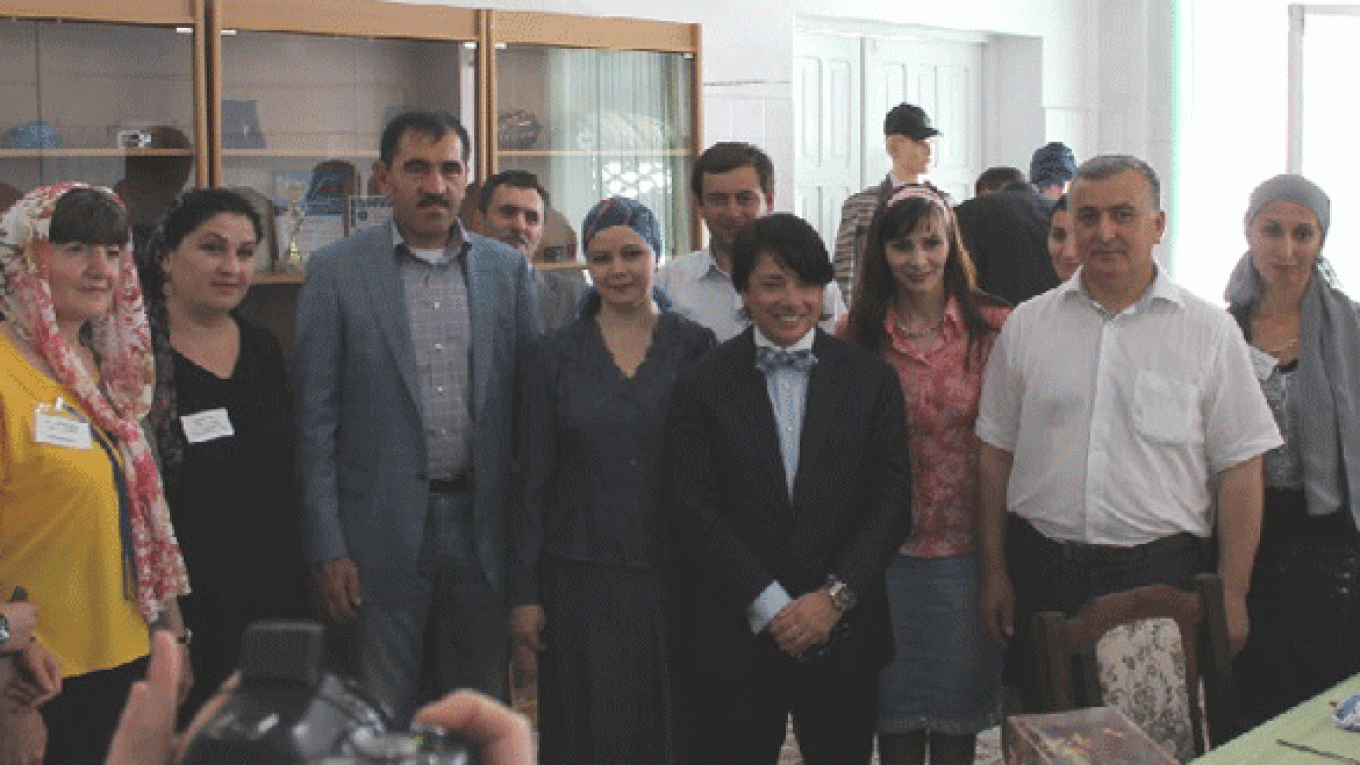Ingush President Yunus-Bek Yevkurov met last week with Yudashkin, who was invited by the local government, last week to discuss building his planned factory in Ali-Yurt, a small village about 1,400 kilometers south of Moscow.
The factory would produce Yudashkin's new casual clothing line as well as other designers' clothing lines, Bella Aldiyeva, spokeswoman for the press center of Ingushetia, said by phone Wednesday. No starting date has been set for construction.
The industrial site at Ali-Yurt was chosen because of its overall convenient location, she said.
The proposed 50-hectare site for the factory has water, gas, electric and sewer hookups financed by federal and regional government programs and is construction-ready, said a spokesman for Ingushetia's Economic Development Ministry.
Ali-Yurt is the birthplace of Magomed Yevloyev, the suspected suicide bomber responsible for killing 37 people in Moscow's Domodedovo Airport in January. Chechen rebel leader Shamil Basayev was killed by federal troops in July 2006 about 10 kilometers from the village.
Yevkurov showed Yudashkin three buildings as other options for the factory, but Yudashkin has expressed his desire so far to build a factory from the ground up instead of using existing buildings, said Fatima Sagova, another spokeswoman for Ingushetia's press center.
Yudashkin could not be reached for comment Monday afternoon.
There are no textile factories in Ali-Yurt, which has a population of about 5,000. Ingushetia itself has no large-scale sewing enterprises, but there are small, private textile shops, Aldiyeva said.
"Of course, if this business venture goes through, it would mean a lot for Ingushetia's economy," said Sagova, adding that she does not know exactly how many jobs the factory would create because there is no finalized plan yet.
Yudashkin, who has gained international fame with his collections, has worked on redesigning uniforms for the Russian military and has designed clothes for first lady Svetlana Medvedeva.
"In my mind, despite the lack of aesthetic quality in Yudashkin's designs, he still manages to make them popular and successful," said Eduard Dorozhkin, Vedomosti fashion critic and deputy editor of Tatler magazine. "He is a talented businessman. So I have no doubt that his current plans will work out."
During his visit, Yudashkin also stopped by a textiles training school and talked about plans to enlist his European colleagues to train factory personnel on the site, said Aldiyeva, who was present during the meeting with Yudashkin.
He met with Ahmed Shadiyev, an Ingush designer, and was impressed by his unique technology of processing fish skin for production of purses, shoes, jackets and other fashion garments, she said.
"Not all details are finalized yet," said Aldiyeva, adding that the factory in Ali-Yurt appears to be just one of the factories Yudashkin is planning to build across Russia. "But [Yudashkin] was happy with what he was shown."
A Message from The Moscow Times:
Dear readers,
We are facing unprecedented challenges. Russia's Prosecutor General's Office has designated The Moscow Times as an "undesirable" organization, criminalizing our work and putting our staff at risk of prosecution. This follows our earlier unjust labeling as a "foreign agent."
These actions are direct attempts to silence independent journalism in Russia. The authorities claim our work "discredits the decisions of the Russian leadership." We see things differently: we strive to provide accurate, unbiased reporting on Russia.
We, the journalists of The Moscow Times, refuse to be silenced. But to continue our work, we need your help.
Your support, no matter how small, makes a world of difference. If you can, please support us monthly starting from just $2. It's quick to set up, and every contribution makes a significant impact.
By supporting The Moscow Times, you're defending open, independent journalism in the face of repression. Thank you for standing with us.
Remind me later.






